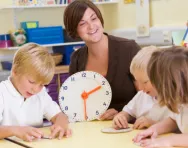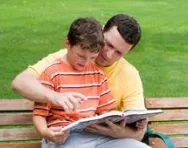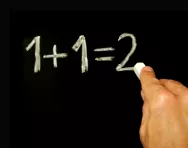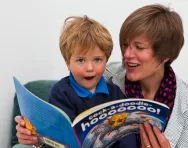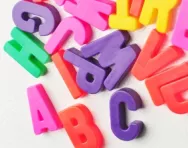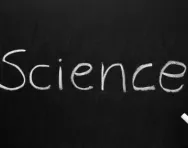Important update from TheSchoolRun
For the past 13 years, TheSchoolRun has been run by a small team of mums working from home, dedicated to providing quality educational resources to primary school parents. Unfortunately, rising supplier costs and falling revenue have made it impossible for us to continue operating, and we’ve had to make the difficult decision to close. The good news: We’ve arranged for another educational provider to take over many of our resources. These will be hosted on a new portal, where the content will be updated and expanded to support your child’s learning.
What this means for subscribers:
- Your subscription is still active, and for now, you can keep using the website as normal — just log in with your usual details to access all our articles and resources*.
- In a few months, all resources will move to the new portal. You’ll continue to have access there until your subscription ends. We’ll send you full details nearer the time.
- As a thank you for your support, we’ll also be sending you 16 primary school eBooks (worth £108.84) to download and keep.
A few changes to be aware of:
- The Learning Journey weekly email has ended, but your child’s plan will still be updated on your dashboard each Monday. Just log in to see the recommended worksheets.
- The 11+ weekly emails have now ended. We sent you all the remaining emails in the series at the end of March — please check your inbox (and spam folder) if you haven’t seen them. You can also follow the full programme here: 11+ Learning Journey.
If you have any questions, please contact us at [email protected]. Thank you for being part of our journey it’s been a privilege to support your family’s learning.
*If you need to reset your password, it will still work as usual. Please check your spam folder if the reset email doesn’t appear in your inbox.
What your child learns in the Early Years Foundation Stage
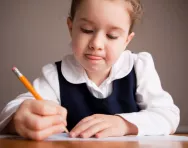
Communication, language and literacy
Communication is at the heart of the EYFS framework and will underpin everything that your child learns. Children’s interactions and conversations are instrumental in building language skills. Another important aspect of Communication and Language development is frequently reading with early years children, including fiction, non-fiction, poetry and rhymes.
This is the first stage in your child's learning to read and write. At this stage, the children will be working on simple phonics. Your school will probably have a reading scheme, so your child will bring books home to read and move through the reading levels as they progress.
They will be reading at school with the teacher and in small groups with children of a similar level, known as ‘guided reading’. With writing, children will have mark-making and writing resources available to use in every area of the early years provision - including outside. They will start drawing vertical lines and anti-clockwise circles and move on to forming letters.


Start the Reception Learning Programme!
- Weekly maths & English worksheets direct to your inbox
- Follows the National Curriculum
- Keeps your child's learning on track
Your child will learn to:
- name and sound the letters of the alphabet
- recognise groups of letters
- hear and say sounds in words
- recognise common and familiar words
- understand a story has a beginning, middle and end
- hold a pencil correctly
- form letters
- write their name
- write simple consonant -vowel-consonant words
- begin to write simple sentences
- use basic punctuation
Problem solving, reasoning and numeracy
This is the first stage of maths. Your child will play with numbers daily and use a range of familiar objects to help them understand basic mathematical ideas. They will be playing number games, singing counting songs, making models and using a role-play area, such as a pretend shop or cafe. Maths will also be linked to any topic work they are doing.
Areas they will be covering will include:
- Counting up to ten and beyond
- Recognising numbers up to nine
- Counting on and back using a number line
- Counting out a number of objects from a group
- Sharing objects into equal groups
- Understanding that ‘addition’ means adding on, and ‘subtraction’ means taking away
- Finding the total number of objects in two groups by counting them all
- Naming and describing the shape and size of 2D and 3D shapes
- Creating their own patterns
- Building models and shapes
Knowledge and understanding of the world
This is the beginning of the wider curriculum for young children and is designed to help them make sense of the world around them. The children will be working in a practical way, exploring and conducting experiments and then presenting their findings through drawings and charts. They will be working with a range of materials, both inside and outside the classroom, possibly linking their work to a school trip, for example, to a local park. Topics they may cover could include:
- Minibeasts (insects)
- Animals
- Plants
- People who help us
- Festivals and celebrations
- Ourselves
- Where we live
- Water
- Seasons and weather
- Communities and cultures
- Time
As part of this topic work, the children will be encouraged to develop particular scientific skills:
Investigation and exploration
- Using their senses
- Looking at similarities, differences and patterns
- Identifying features of living things, objects and events
Design and construction
- Using materials
- Choosing the right tools
- Making and describing an object
ICT
- Exploring how we use ICT in everyday situations
- Completing a simple computer programme
- Using a mouse and keyboard
Expressive Arts and Design:
This is the creative part of the curriculum. Children will learn through music, singing, dancing, art, stories, rhymes, imaginative play, modelling and using technology creatively.
